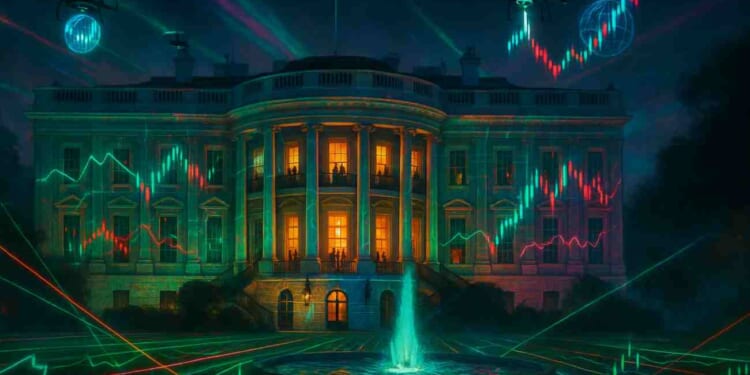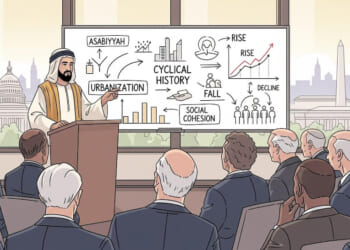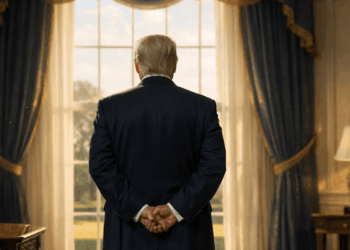“A government-run grocery store? What a disaster!”
“I know! By the way, I made 2x on Intel after the government bought in!”
These quotes summarize recent comments I’ve heard about government interventions in private markets.
The first, of course, refers to NYC mayoral candidate Zohran Mamdani’s plan to open city-run grocery stores. The idea is to eliminate greed and profit from the equation, and give customers lower prices and higher-quality food.
Ha!
We all know how the shopping experience will be like at an NYC-run food market. Horrific. Bare and dirty shelves, inefficiency, flies eating rotten food. Workers on their phones. And shoplifting will probably be encouraged.
But what about that second quote? I know people who have done very well investing in Intel (INTC) and MP Materials (MP), two publicly-traded companies which the federal government has taken stakes in. Both have soared in the wake of Uncle Sam’s backing.
Profits are always good, don’t get me wrong. But there is a bit of hypocrisy at play here.
In the right-leaning political world, many of us are cackling at the idea of communists running grocery stores.
But when the government takes a stake in a public company, we cheer (at least if it’s in our portfolio).
Important Distinctions
Unfortunately, it is 100% necessary for the government to support the critical minerals sector. I don’t like this, but it’s where we are.
China has a near-monopoly on rare earths and certain other critical minerals. Without government assistance, our industry will never catch up.
Price floors are arguably the most critical support on offer. Without the government guaranteeing minimum prices to Western rare earth companies, China can crush the nascent sector at any time by flooding the market and collapsing prices.
Loans and grants may also be required in certain cases. After all, Tesla relied on government loans and grants in its early years, right?
Well, that’s the only recent example which comes to mind. Of the dozens or even hundreds of “green new scam” investments the government made, Tesla might be the only real success story.
Clearly, we need a better system for deciding who gets the money. And it needs to be completely transparent.
Direct investments are where I start to get a little uncomfortable. Yes, it’s good that we taxpayers get upside, but there are major risks down this road.
So far, the Trump administration has only taken limited stakes in the companies they’ve invested in. A 9.9% chunk of Intel, and 15% of MP Materials. And importantly, they took non-voting shares. The last thing we want is the executive branch with direct control of important public companies.
Risks and Concerns
We’re in a spot where the government essentially has no choice but to step in and support certain industries, especially rare earths.
What worries me is the direction this is headed. Under President Biden, we saw the damage government interference in private companies can do.
The Biden White House pressured tech companies to ban, delete, and hamper users who were critical of the official COVID narrative.
It was a gross violation of the First Amendment. It prevented Americans from getting the full story about a critically-important issue. And that happened without the feds even owning a stake.
So, if the U.S. government continues investing in private companies, what risks do we face long-term?
Insider trading is one obvious concern.
Another potential issue is if the feds eventually coerce companies to do their bidding. For example, a future President might strongarm a company like Intel into building a future plant in a specific area for political reasons.
Nepotism is another real risk. As is the company losing motivation if they feel like the government has their back no matter what.
There’s also the possibility that the government will continue investing in failing ventures, if only to save their pet projects.
The USSR and FDR
We saw all these problems play out in the Soviet Union. Over time, productivity collapsed as corrupt bureaucrats became entrenched in major industries.
Innovation died because there was so little incentive to invent and improve.
Those in power became rich and lazy while average citizens scraped by.
We also saw this in 1932 with FDR’s New Deal. The government bailed out hundreds of banks and railroad companies, keeping these “zombie” corporations alive when they should have failed. As a result, the Great Depression lasted much longer than it should have.
The New Deal template was also used during the 2008-2009 bank bailouts. We kept banks alive that should have died, and have paid a steep price for this “rescue” in the years since. Bankers kept collecting fat bonuses while average Americans struggled. It set a bad precedent.
Charlie Munger famously said, “Show me the incentive and I’ll show you the outcome.”
As the government proceeds with its private investments, we must be mindful of Charlie’s advice.
Incentives are everything, and if we’re not careful, government intervention has the potential to spoil them.
Regardless of all that, we know that the government is going to be investing more money into certain sectors. So putting aside our moral qualms, we’ll keep an eye out for ways to profit from the trend.
After all, anything less would be downright socialist.















